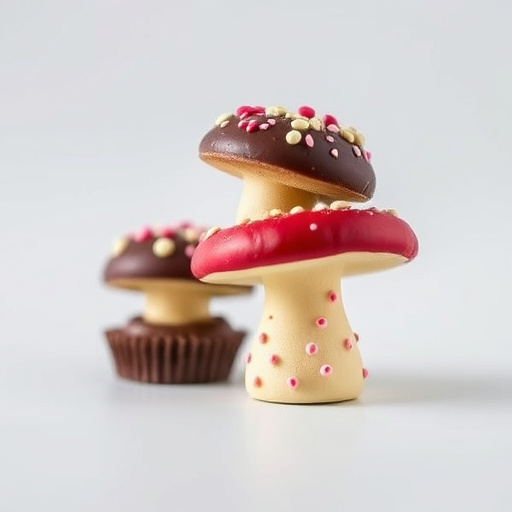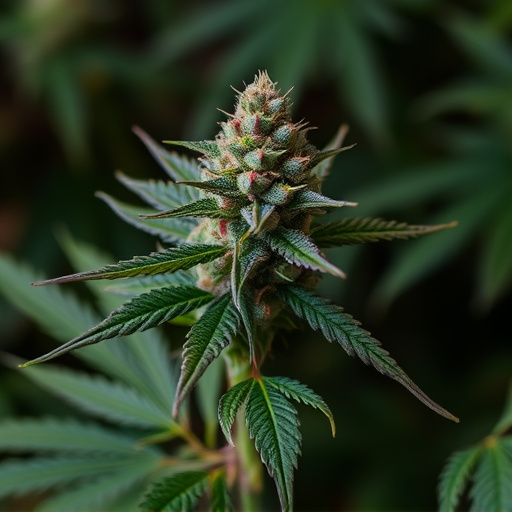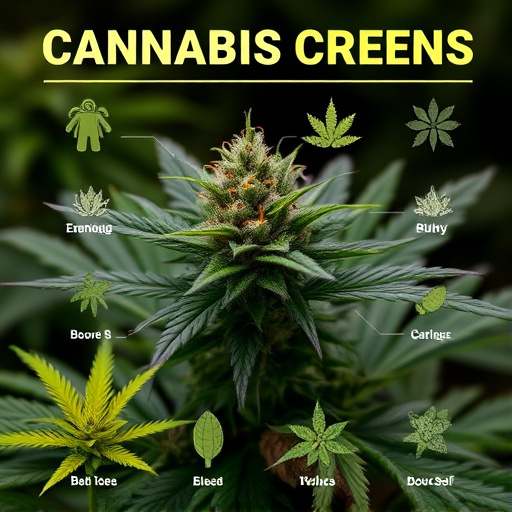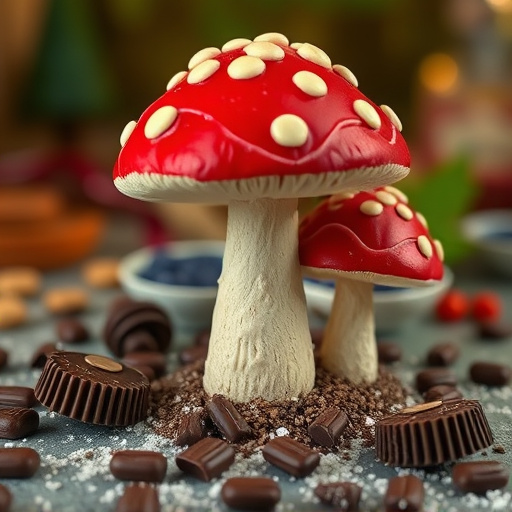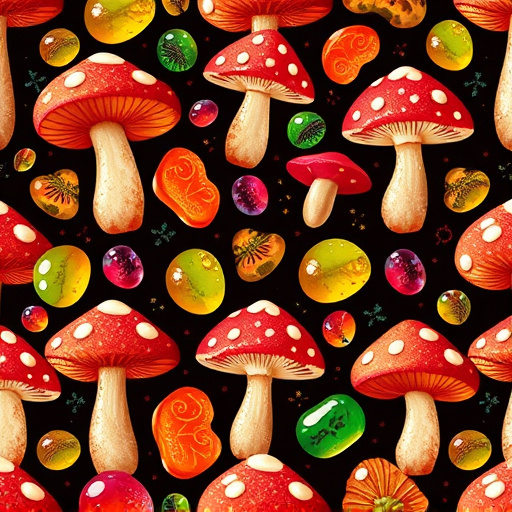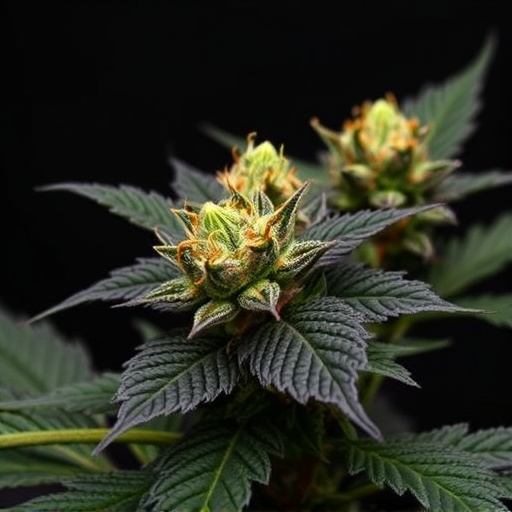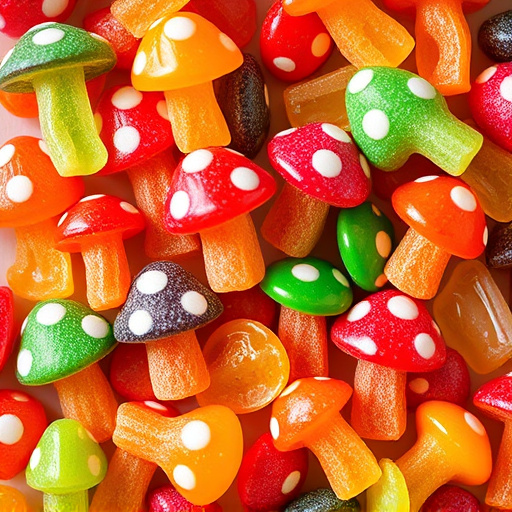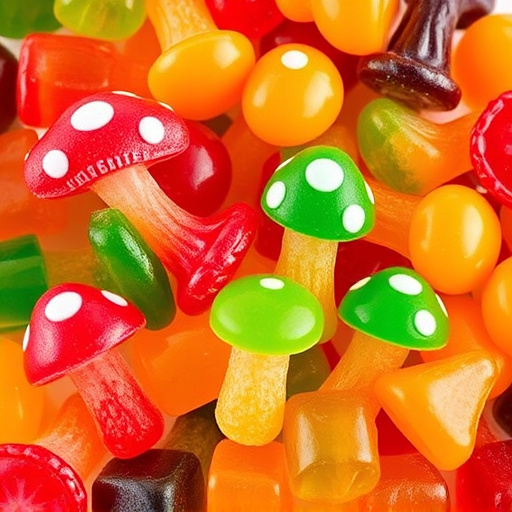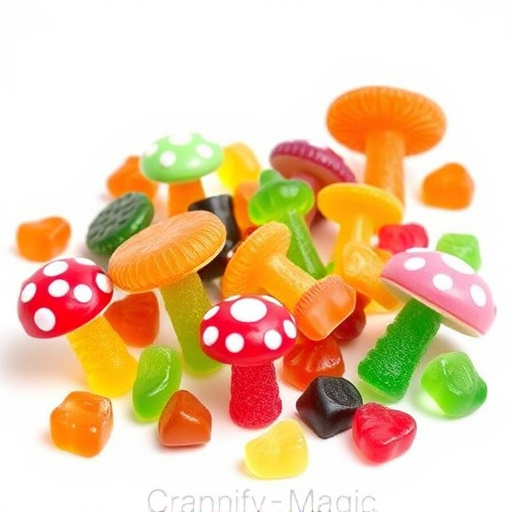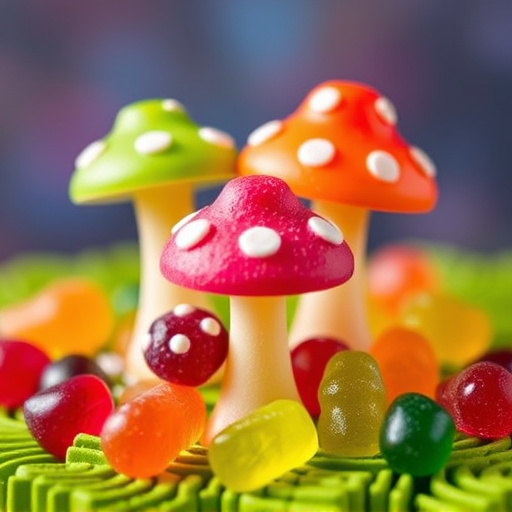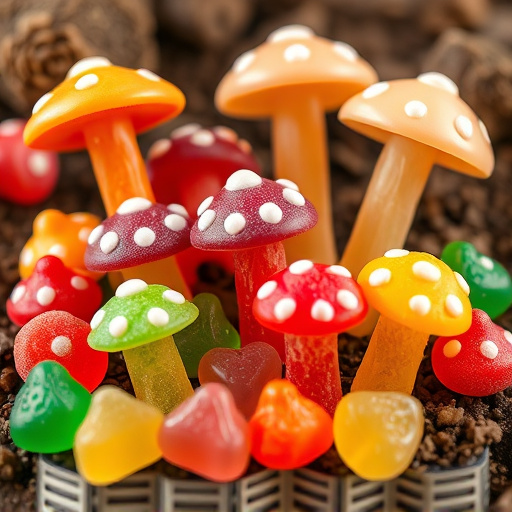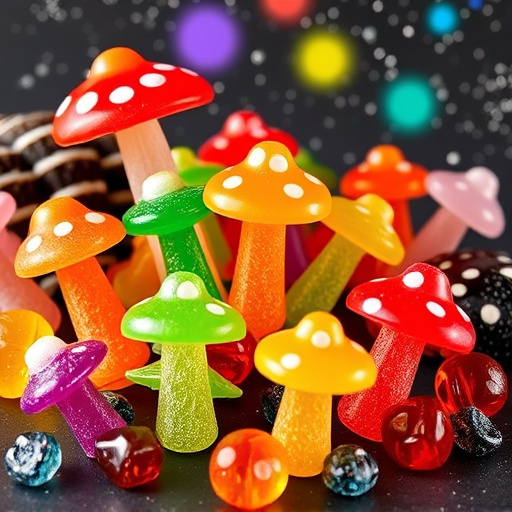Magic Mushroom Gummies represent a modern, palatable approach to exploring therapeutic psilocybin, harnessing its ability to enhance brain plasticity. By interacting with serotonin receptors, psilocybin promotes neuroplasticity, leading to improved creativity, problem-solving, and emotional well-being. Recent studies highlight the potential of these gummies in controlled settings for mental health treatments, particularly depression and PTSD, offering a promising new avenue for exploration.
“Unraveling the potential of lab-tested magic mushroom gummies, this article delves into the fascinating intersection of traditional medicine and modern delivery methods. We explore the science behind these innovative products, focusing on their active compound, psilocybin, and its remarkable effects on brain plasticity. From enhancing cognitive function to aiding recovery from trauma, learn how magic mushroom gummies could be more than just a trend. We also navigate dosage considerations, safety guidelines, and legal landscapes, ensuring an informed perspective on this emerging wellness trend.”
- The Science Behind Magic Mushroom Gummies
- – Exploring the active compounds in magic mushrooms and how they interact with the brain
- – Discussing lab-tested gummies as a controlled and safe delivery method
The Science Behind Magic Mushroom Gummies
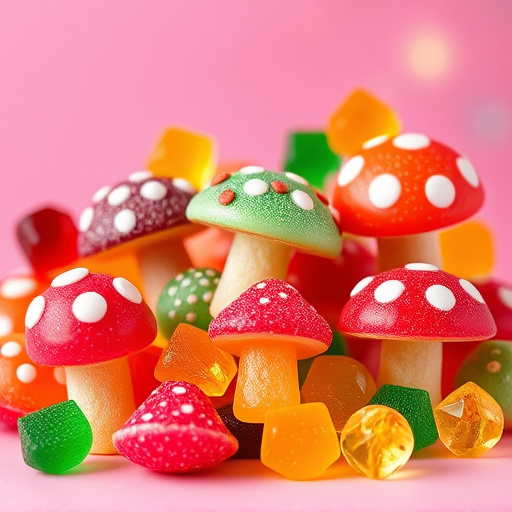
The science behind Magic Mushroom Gummies is intriguing, as it explores the potential therapeutic benefits of psilocybin mushrooms in a novel delivery method. Traditional methods involve ingestion of dried mushrooms, but gummies offer a more palatable and controlled approach. By infusing psilocybin into a chewy treat, users can experience its effects while enjoying a sweet snack. This modern twist on an ancient practice opens up new possibilities for exploration of brain plasticity.
Brain plasticity refers to the brain’s remarkable ability to adapt, change, and rewire itself in response to experiences, stimuli, or conditions. Magic Mushroom Gummies facilitate this process by introducing psilocybin, a compound known to enhance neural connections and promote neuroplasticity. Research suggests that psilocybin can help individuals gain new perspectives, process emotions more effectively, and even support therapeutic treatments for various mental health conditions.
– Exploring the active compounds in magic mushrooms and how they interact with the brain
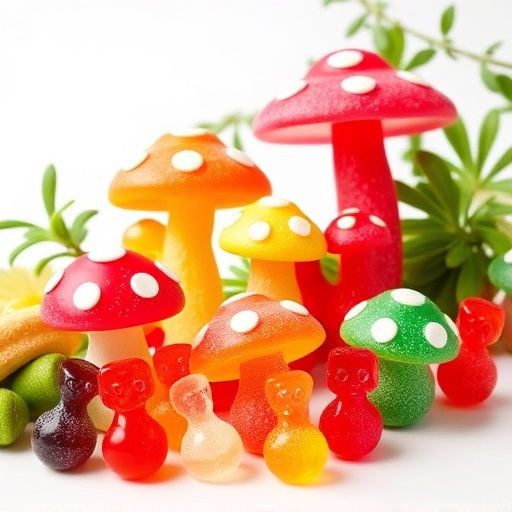
Magic mushrooms, scientifically known as Psilocybin mushrooms, contain active compounds that have fascinated researchers for decades due to their unique ability to alter consciousness and promote heightened sensory experiences. The primary compound of interest is psilocybin, which is a potent serotonin receptor agonist. When consumed, psilocybin converts into psilocin in the body, further interacting with serotonin receptors in the brain. This interaction plays a crucial role in enhancing brain plasticity—the brain’s ability to adapt and reorganize its neural connections.
Brain plasticity is a fundamental process that allows individuals to learn, form memories, and experience altered states of consciousness. In the context of magic mushroom gummies, this interaction leads to changes in perception, mood, and cognition. Studies have shown that psilocybin can promote neuroplasticity, potentially fostering new neural pathways and enhancing creativity, problem-solving skills, and emotional well-being. This exploration of active compounds in magic mushrooms offers a promising avenue for therapeutic applications, particularly in mental health treatments where brain plasticity is key to recovery and resilience.
– Discussing lab-tested gummies as a controlled and safe delivery method
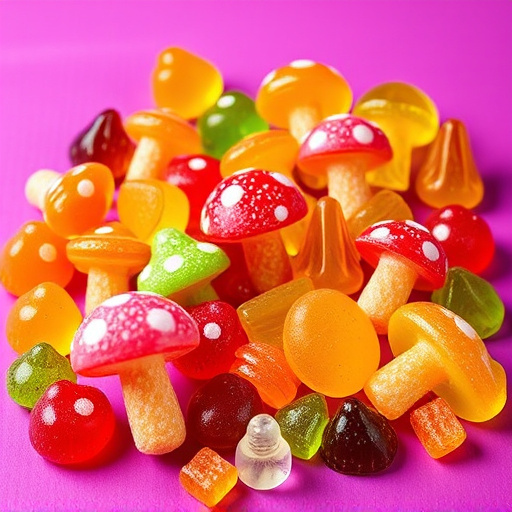
In recent years, lab-tested Magic Mushroom Gummies have emerged as a novel and controlled way to explore the potential benefits of psilocybin, the active compound found in magic mushrooms. This delivery method offers a safe and precise way to experience the effects, allowing for better dosage control compared to traditional consumption methods. By standardizing the content and quality, lab-tested gummies ensure that users can understand exactly what they’re ingesting, promoting responsible use.
Beyond safety, lab-tested Magic Mushroom Gummies hold promise in enhancing brain plasticity—the brain’s ability to adapt and reorganize itself. Research suggests that psilocybin can promote neuroplasticity, potentially opening doors to improved mental health treatments for conditions like depression and PTSD. The controlled environment of a gummy provides an accessible entry point for individuals interested in exploring these potential benefits without the risks associated with unsanctioned or unpredictable sources.
In light of the above, it’s evident that lab-tested magic mushroom gummies represent a promising advancement in psychonautic exploration. By harnessing the power of active compounds found in these mushrooms and encapsulating them in a controlled, gummy format, we can experience their effects with enhanced safety and precision. This method allows for a deeper understanding of brain plasticity and the potential therapeutic benefits associated with psilocybin. As research continues to evolve, magic mushroom gummies may one day play a significant role in mental health treatments, offering a novel approach to navigating our complex neural landscapes.
